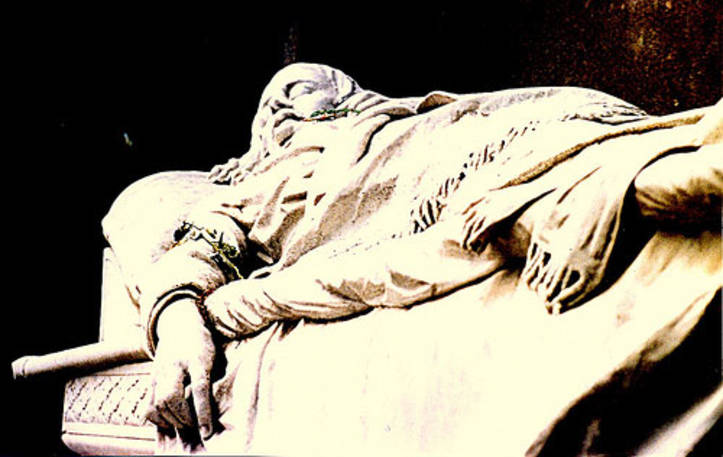


ROME – The stunning losses of the far left, which ran three parties together as the Sinistra Arcobaleno, are being minutely analyzed. These three included the Verdi (the Green party) of Pecoraro Scannio, which achieved nothing but to “file themselves into the archives,” to borrow a friend’s phrase. Pollsters including Consortium, which works for both RAI and Sky, say that the Verdi dropped 75% of their previous electorate, or three out of four. The toxic waste dumps of Naples should have given them a hand, but that protest vote went elsewhere, and especially to Di Pietro’s Italia dei Valori.
The second in the Arcobaleno trio was Oliviero Diliberto’s Partito dei Comunisti Italiani (PdCI), which lost eight out of ten who had voted for that party only two years ago. Finally, Fausto Bertinotti’s Rifondazione Comunista lost six out of the ten who voted for it in 2008. This decimation showing an out-of-touch and dated far left may be useful, for it paves the way for the growth of a unified moderate left, as commentators like Corrado Augias point out.
Meantime, the winners are jockeying for position. Pierferdinando Casini’s Unione di Centro, with nearly 6%, is remaining for the moment outside the fray, promising “constructive” help to the government even as he is being actively courted by left, right and center. Although at the outset strong Catholic Church interference was predicted, in point of fact Casini’s was the closest to a Catholic campaign save for the complete flop by the abortion list run by the ever polemical journalist Giovanni Ferrara. For a future government that 6% may be decisive, but otherwise it suggests that the specific Catholic vote is no longer a factor in Italian politics.
In the city of Romeo and Juliet at least one out of four voters opted for “il Caroccio,” the Big Cart, as the Northern League is called by its aficionados. The strong showing by Umberto Bossi’s party (8.4% in the Chamber), which is expected to field four ministers, has made Verona its capital and the capital of a certain type of protest vote. This is full employment Italy—wealthy, tidy, hard working. But as a Verona workman who voted the Bossi ticket said, “There are too many foreigners in town who steal and don’t work.” The guessing then is that Bossi stole votes from both blue collar workers and from Berlusconi’s Popolo della Libertà. As a Berlusconi party official acknowledged, “We should have campaigned more like Bossi. The voters just don’t see us as representing them.”
Among the various local governments holding elections, Rome’s will require a run-off later this month for mayor between the two front-running candidates, Franceso Rutelli of the new Democratic Party and Giovanni Alemanno of the Popolo della Libertà. At the moment his 45.8% of the vote puts Rutelli is handily in the lead over Alemanno, with 40.7%, but no one is taking victory for granted, and Rutelli, hoping for a second round as mayor, is planning on a door-to-door campaign.
Rutelli, who served as Culture Minister in Romano Prodi’s two-year government, has won kudos for his successful prosecution of foreign museums and private collectors worldwide who had purchased looted Italian antiquities. Whoever wins in Rome will face a mountain of other problems, however, from the graffiti smeared on walls to toxic waste problems (Naples is not alone) and the resettlement and, one might hope, integration of the thousands upon thousands of Rom living in desperate conditions in illegal camps.
As a financial footnote addressed to those interested in the public financing of political parties, the eight which won more than one percent of the vote will automatically receive a reimbursement for their election expenditures, to the tune of 407 million Euros, or over $600 million. All told there were 47,295,978 voters for the Chamber and 43,257,208 for the Senate.
Source URL: http://test.casaitaliananyu.org/magazine/focus/facts-stories/article/italys-shifting-political-balance
Links
[1] http://test.casaitaliananyu.org/files/1688mameli1208495586jpg